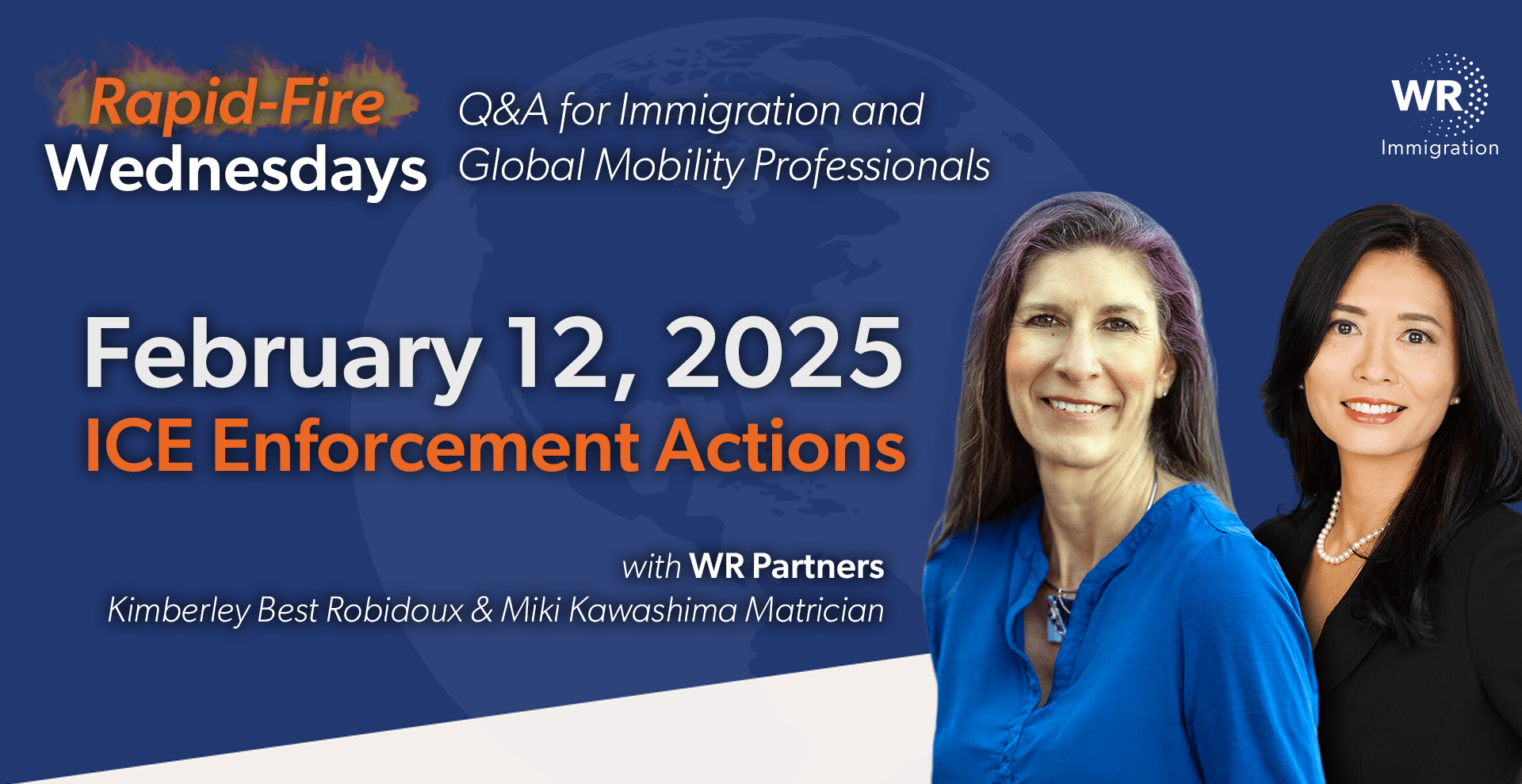The transcript version of our weekly Q&A livestream for corporate immigration professionals. Join our Immigration News Digest Newsletter for more immigration updates.
By Kimberley (Best) Robidoux & Miki Kawashima Matrician
🔥 Question: What should corporate mobility and HR professionals know about ICE enforcement actions?
Response: ICE is actively conducting enforcement actions across the country. Each of the 25 ICE field offices has been given a directive to meet a daily quota of 75 arrests. However, it’s important to know that ICE cannot simply enter private workplaces without a judicial warrant or company consent. If they are entering a public area, such as a lobby, they do not need a warrant. Understanding these distinctions is crucial for employers.
🔥 Question: What is the difference between a judicial warrant and an administrative warrant?
Response: A judicial warrant is issued by a federal or state court, signed by a judge, and is enforceable in a court of law. It specifies the individuals or documents being sought and the exact location. In contrast, an administrative warrant, typically issued by the Department of Homeland Security, is not enforceable in court and pertains to civil immigration violations rather than criminal investigations. Employers are not legally required to comply with an administrative warrant and can ask ICE agents to leave if they present one.
🔥 Question: Can ICE conduct workplace audits beyond just searching for undocumented employees?
Response: Yes. ICE also conducts I-9 audits, which are separate from enforcement actions that involve searching for individuals. When conducting an I-9 audit, ICE’s Homeland Security Investigations (HSI) agents issue a Notice of Inspection (NOI), usually presented in person. Employers should carefully review the NOI to ensure that the company’s legal name is correctly stated before signing. If there are errors, employers should request a corrected version before proceeding.
🔥 Question: What documents do employers need to provide during an I-9 audit?
Response: Along with Forms I-9, employers may be asked to submit business licenses, incorporation documents, payroll records, E-Verify records, social security no-match letters, and any training documentation related to the I-9 process. The payroll records help ICE/HSI verify that all active employees have I-9s on file and confirm their start dates. These supporting documents are typically requested through an administrative subpoena, which has a different submission timeline from the I-9 forms.
🔥 Question: Should employers waive the three-day notice period for I-9 audits?
Response: No, employers should never waive the three-day notice period. The NOI includes an option to waive this notice, which would require employers to immediately turn over their I-9s. Retaining this three-day window allows employers to review their records, consult with legal counsel, and ensure compliance before submitting documents.
🔥 Question: What steps should employers take to prepare for potential I-9 audits?
Response: Employers should conduct internal audits of their I-9 forms and supporting documentation. If unsure how to proceed, they should engage immigration counsel for guidance. The key steps include:
- Ensuring that every active employee has a completed Form I-9.
- Verifying that work authorization documents, such as EAD cards, have not expired.
- Completing Form I-9 Supplement B for re-verification of work authorization for employees with temporary work authorization.
- Regularly purging Forms I-9 of terminated employees beyond the retention period (one year after termination or three years after the date of hire, whichever is later).
- Ensuring that active employees’ Forms I-9 are never purged.
🔥 Question: How can companies ensure their front desk staff is prepared for ICE visits?
Response: Employers should train front desk personnel on how to handle government visits. This includes:
- Consulting with legal counsel before complying with any document requests.
- Understanding the difference between administrative and judicial warrants.
- Knowing who to contact within the company if ICE arrives.
- Having a clear plan for handling administrative requests for employee records.
Send us your questions via DM or using the below link!
HR Question Submission Form | Rapid-Fire Wednesdays
See you next week!


